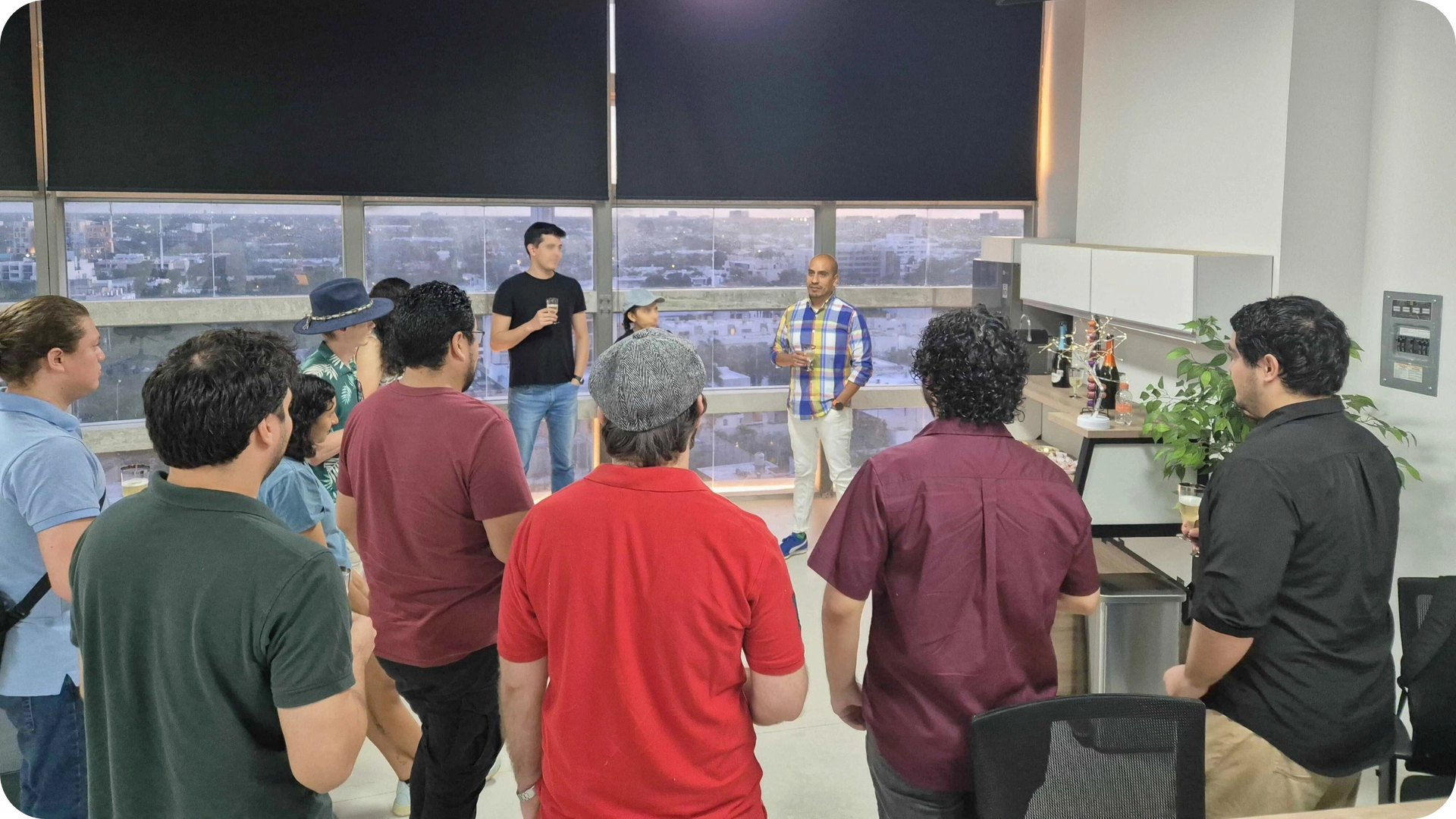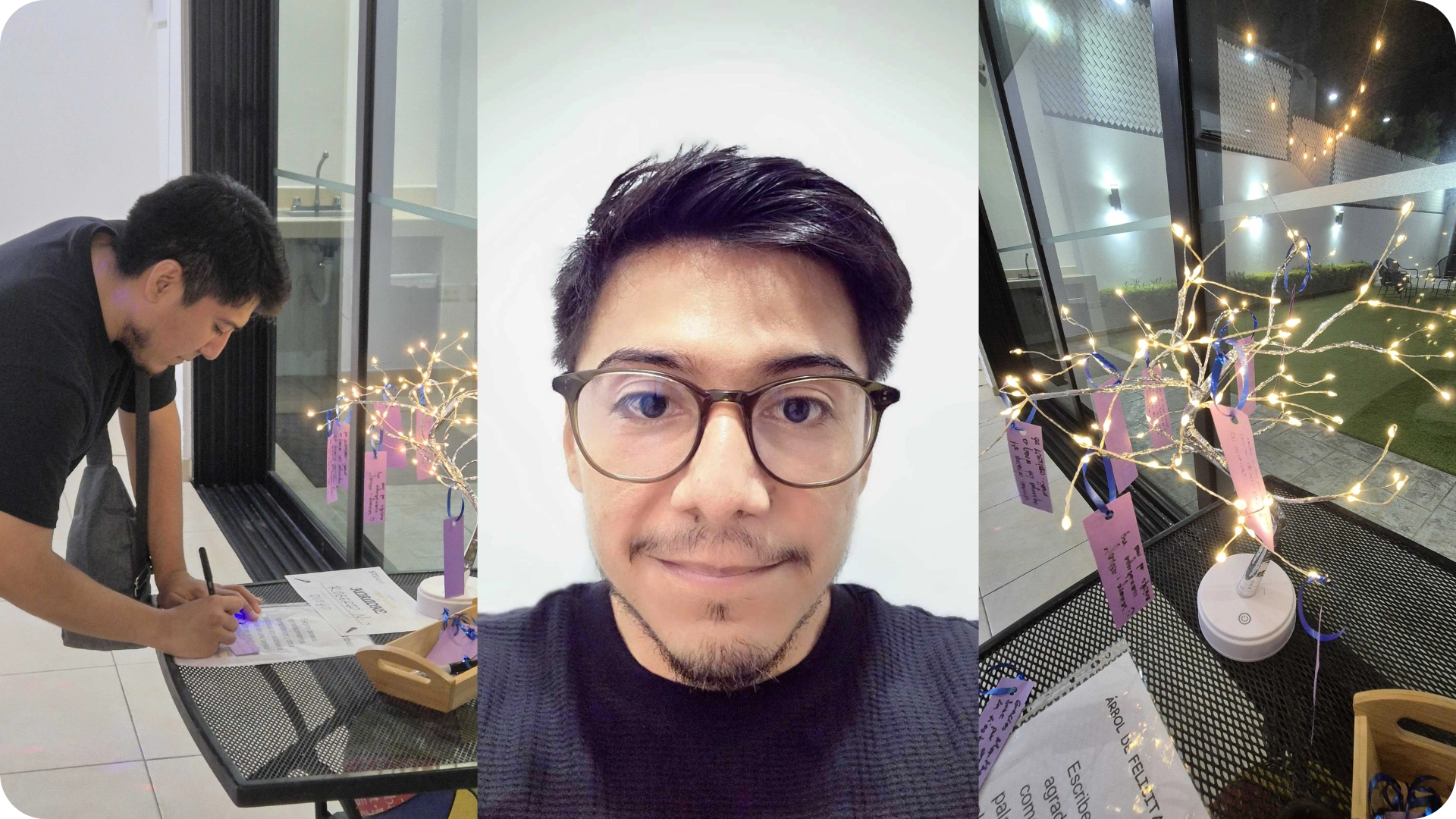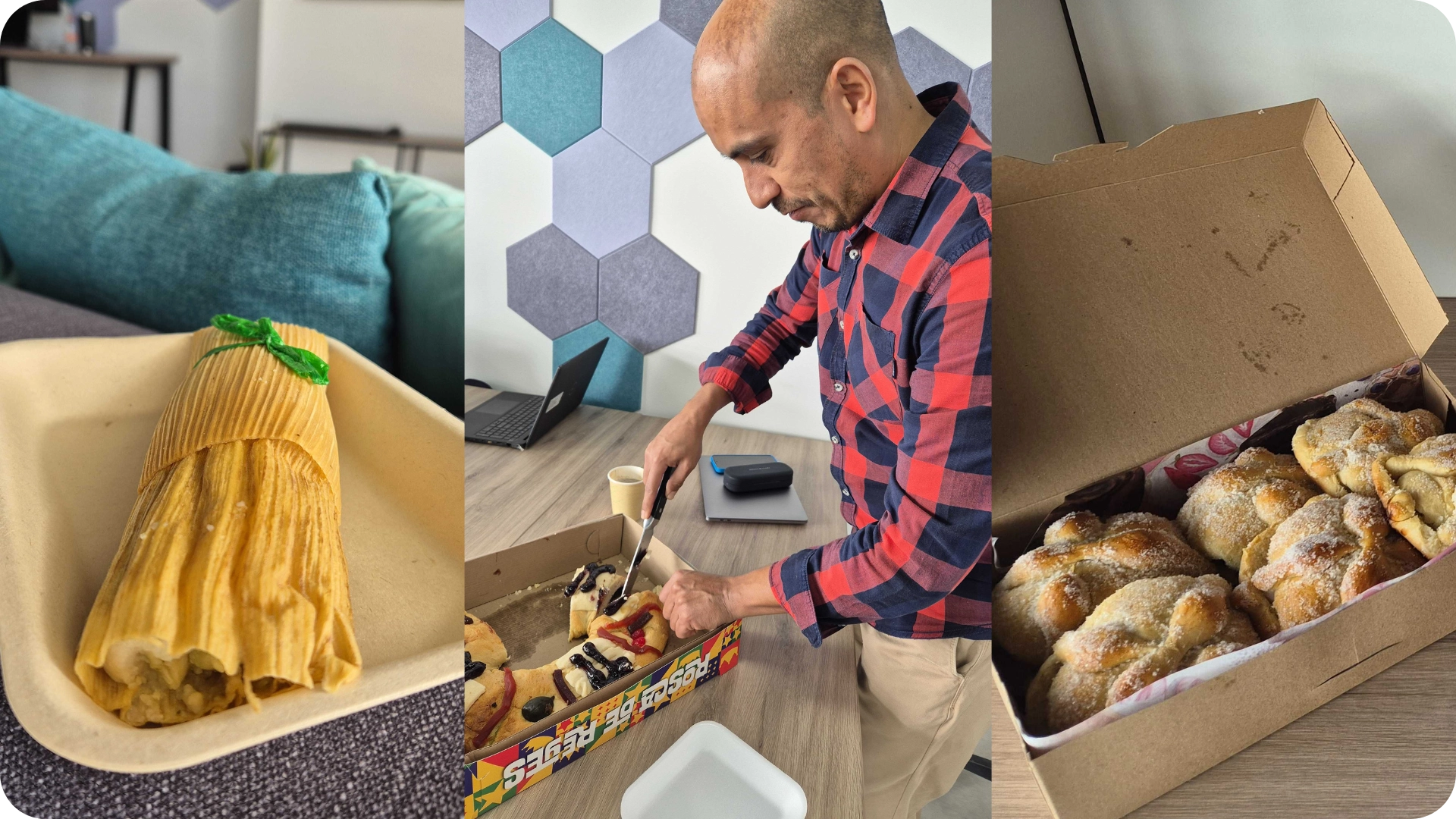Building Code, Bridging Cultures: Work-life balance at STX Next Mexico
Developers’ involvement in the project
Roberto has been working with STX Next on several different short-term projects. Currently, as the main front-end developer in the JS team, they are modernizing an existing application, which looks like it's from the 90s, and bringing it to a 2025 standard. This project is expected to improve performance and scalability and is estimated to take four months to complete.
“I can suggest a change to a library or something, and people hear me, consider it, and at the end of the day, we agree on what is best for us and the project,” he says. “It feels good to make a real contribution.”
Navigating time and team dynamics
Regarding team structure, Roberto recalled that he’s previously worked with a mix of client and STX Next engineers. “In my current team,” he explains “the project manager is based in Poland while all the developers are located in Mexico.” At STX Next, we build our teams so that engineers complement each other’s skills, while ensuring that different working styles don’t disrupt the smooth progress of the project.
“At the start of the collaboration with STX Next, a few friends told me that the company will need me to wake up really early in the morning, around 2 or 4 a.m. That’s too early! But, at least in my experience, there are no issues with time zone differences requiring that from the Mexican team. Basically, we just talk with each other and agree on a specific hour.”
I asked Roberto how the manager syncs with team hours and handles time-zone projects—simple. Most of STX Next’s European developers work until 5 p.m. CEST, which corresponds to about 9 or 10 a.m. in the Mexican time zones. This overlap provides a good fit for collaboration. “The most extreme hour was 7:30 a.m. I’ve never encountered any scheduling conflicts, and I’m quite happy with this arrangement," emphasizes Roberto.

The importance of conversation. Culture and communication differences
The relaxed, positive spirit I’ve found among our developers in Mexico, sometimes contrasts with the straight and goal-oriented communication style I’ve observed in some of my Polish colleagues. However, Roberto noted that cultural clashes are not an issue, emphasizing that communication is key to resolving misunderstandings.
He admitted that there was a time when a direct comment initially felt rough, “But we talked about it, and at the end of the conversation, we were laughing together.” He also highlighted that, “In Mexico, we are very warm and try not to say things too directly,” stressing the importance of respectful communication within the team and suggesting that project ticketing can also be really helpful. By documenting discussions, developers can review the record if any misunderstandings arise.
Choosing global employer over domestic company. The differences in work-life balance
When Roberto started working at STX Next Mexico, our branch in Mérida had only been operating for five months. At that time, we weren't very popular on this market. I was curious about how he found out about us and how he decided to join a company from Poland.
Roberto was drawn to STX Next because of our reputation as the biggest Python powerhouse in Europe and—more importantly for him—work-life balance mentioned in the job description. I was quite surprised to discover that such a fundamental benefit wasn’t commonly offered by companies in Mexico.
“Honestly, in many companies here, overtime often goes unspoken—and sometimes it’s ‘rewarded’ with a pizza night rather than extra pay. When I saw in the job description that STX offered a flexible schedule, I was immediately interested—it felt like the best benefit I could ask for. I also believed my front-end expertise would be a real asset to the company, so it seemed like a win–win. After I started, I realized there was no micromanagement of my hours: as long as I attend the key meetings, I’m free to organize my day. If I need to step away for a dentist appointment, no one bats an eye—I just make up the time later or work those hours in the evening,” says Roberto happily.

Personal and professional growth
Choosing a global company has also helped Roberto grow personally. Working in an international environment encouraged him to step out of his comfort zone and improve his communication skills, especially as an introvert. “I'm a little bit nervous even right now and it's difficult to express myself, but honestly when I started working at STX, I didn't have this fluency,” he admitted.
Roberto has also received a lot of support from his manager for certifications and the freedom to explore different technological paths, including backend and cloud technologies. His goal is to become a full-stack developer.
“My manager encouraged me to choose a clear path, for example specialize as a senior front-end engineer or branch out into other areas. In fact, when I found myself on the bench, he told me to learn anything I wanted—cloud technologies, backend development, another programming language—and promised his full support. That level of flexibility made a huge difference and helped me a lot, especially coming from a culture where developers are often expected to handle every layer of the stack. He did caution me not to cover too much, but he’s been completely behind me as I explore new skills,” Roberto confessed to me. “I honestly appreciate that guidance and trust.”
People of STX Next - the community and gatherings
You might not know this but Mexico is a really big country! To travel from one end to the other, you will have to cover more than 5,600 km! That’s 66 hours of driving or a 5 hours flight! I didn't realize that when Roberto noted the challenge of organizing work events in Mexico, often requiring employees to travel by plane.
Roberto shared that one of his most cherished memories at our company is the annual year-end party, which brings together employees from across Mexico. Only now do I realize the scale of this undertaking.
Even though from time to time they try to meet at our Mérida office, Roberto says, “I prefer working from home, but we do have an unwritten rule: every Thursday, everyone comes into the office for an in-person meetup.”
“Our team makes an effort to get together for everything. In fact, our previous manager invited us to his home in order to play board games or just talk. It really helped build trust among everyone, and for me it was like, ‘Hey—I’ve made new friends!’ ”

Roberto also left an advice for those who are considering joining STX Next:
“Honestly, communication is key. Share your ideas and if you run into a problem, if you think there’s a better way to do something—speak up. In my experience, Polish colleagues really listen, try to understand your point of view, and do their best to address any issue you raise. So don’t be afraid to voice your feedback. One thing that surprised me was the language: in Mexico, national teams always speak Spanish, and I was eager to practice my English. At first, Polish people sounded strict to me, but after I joined STX, I discovered a completely different, much more supportive vibe.”











